In 1985, a peaceful protest in the Philippines against President Ferdinand Marcos’ imposition of martial law resulted in 20 civilians being shot dead by paramilitary forces, and many more injured.
That event in Escalante, in Negros Occidental province, is the starting point of artist duo Enzo Camacho and Ami Lien’s exhibition at Para Site, a non-profit art space in Quarry Bay in Hong Kong.
“Offerings for Escalante” ties history with the present, art with activism and, above all, local calls for land reform that resonate with universal concerns over food sovereignty and agrarian oppression.
Lien and Camacho, who have been collaborating since 2009, have long conducted field research in Negros, the fourth-largest island of the Philippines and historically home to wealthy landowners who made their fortunes from sugar cane plantations.
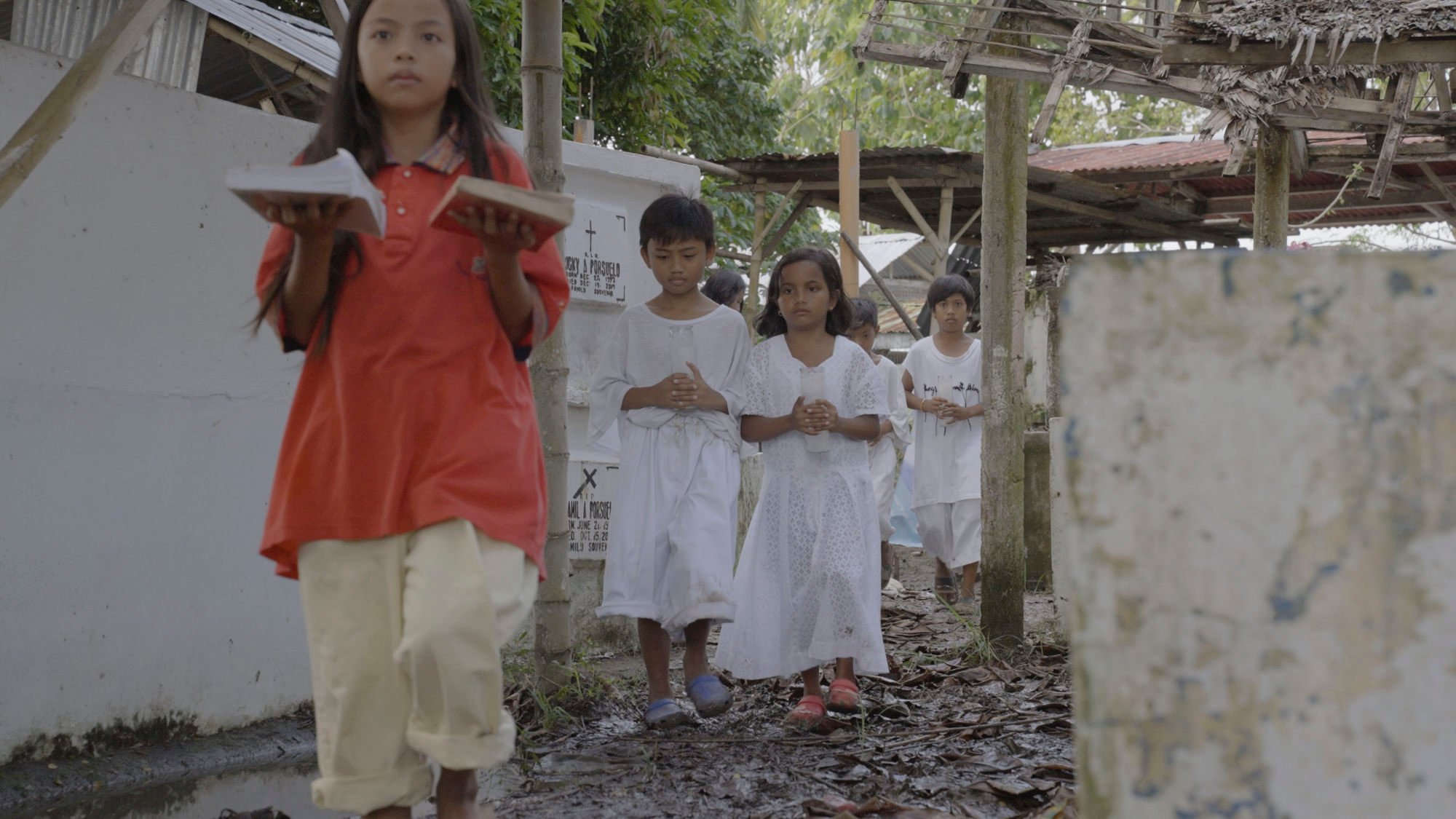
A highlight in the Hong Kong show is a new, hour-long experimental documentary called Langit Lupa, which means heaven and earth in Tagalog.
Anonymous witnesses of the Escalante massacre recall the events of September 20, 1985, and relate through voice recordings how the protest, which marked the 13th anniversary of the declaration of martial law, included calls for fair wages, better working conditions and land reform.
These artists want you to know what it’s like to be an animal
These artists want you to know what it’s like to be an animal
“When you look at the film and hear the testimony, you’ll see even the demands of the people who were protesting at that time are the same demands that people are calling for today in terms of higher wages, and land reform first and foremost,” says Camacho, who has ancestral roots in the Negros region.
“All of the calls are the same, so the situation really hasn’t changed.”
“Offerings for Escalante” is about how history repeats itself, he adds.
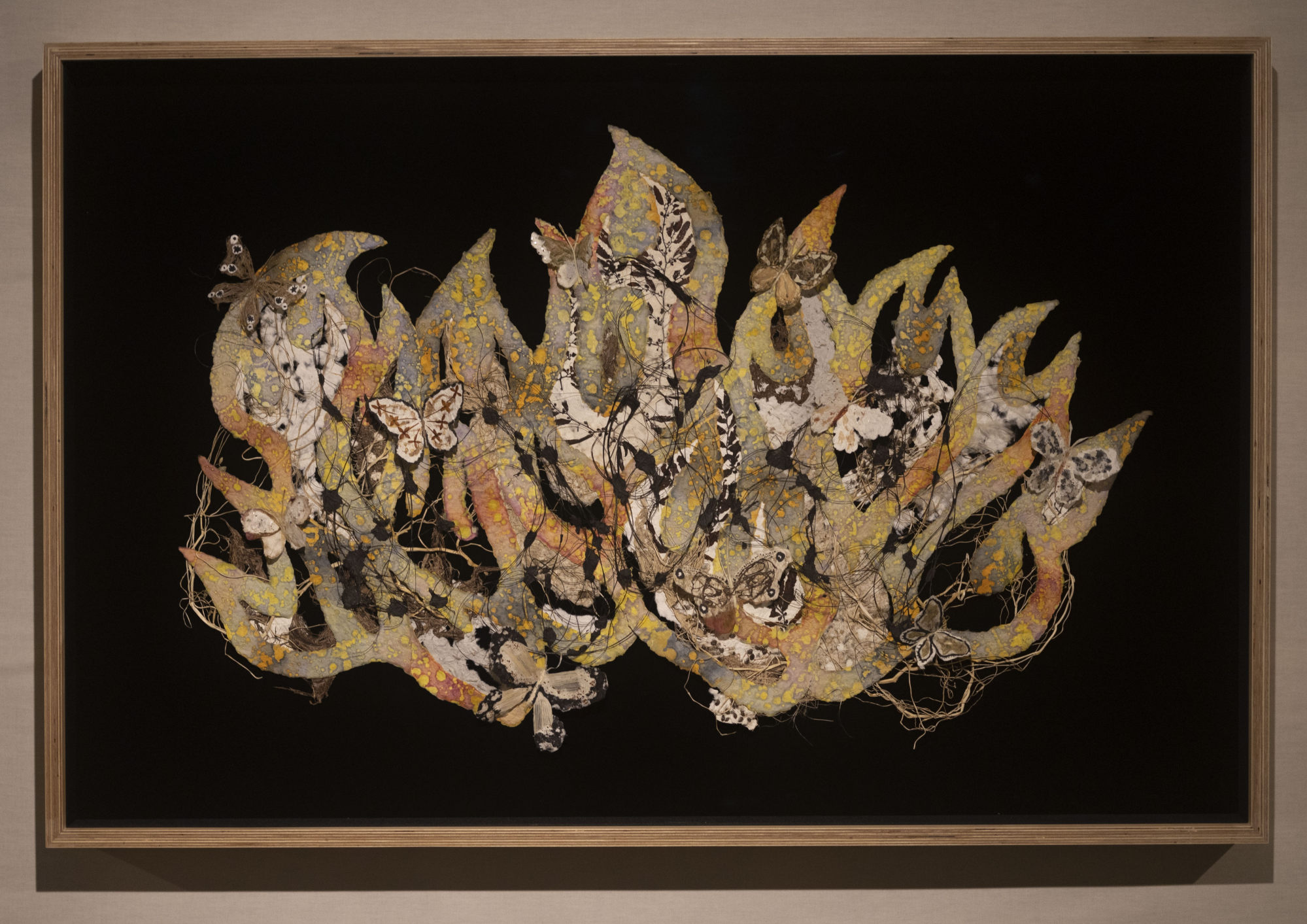
The voices in the film are accompanied by “phytograms”, images created using the chemical reaction between plants and photographic emulsion to create imprints of their shapes.
By immersing the audience in these meditative, semiabstract imageries, Lien says they hope to create a new experience of documentary films.
“We wanted to shift certain expectations around what a documentary film about a historical trauma could be, and to think beyond the conventional narrative forms,” says Lien, who was born in the US. The imagery, as opposed to real footage, can help the audience open up to receiving new knowledge, she adds.
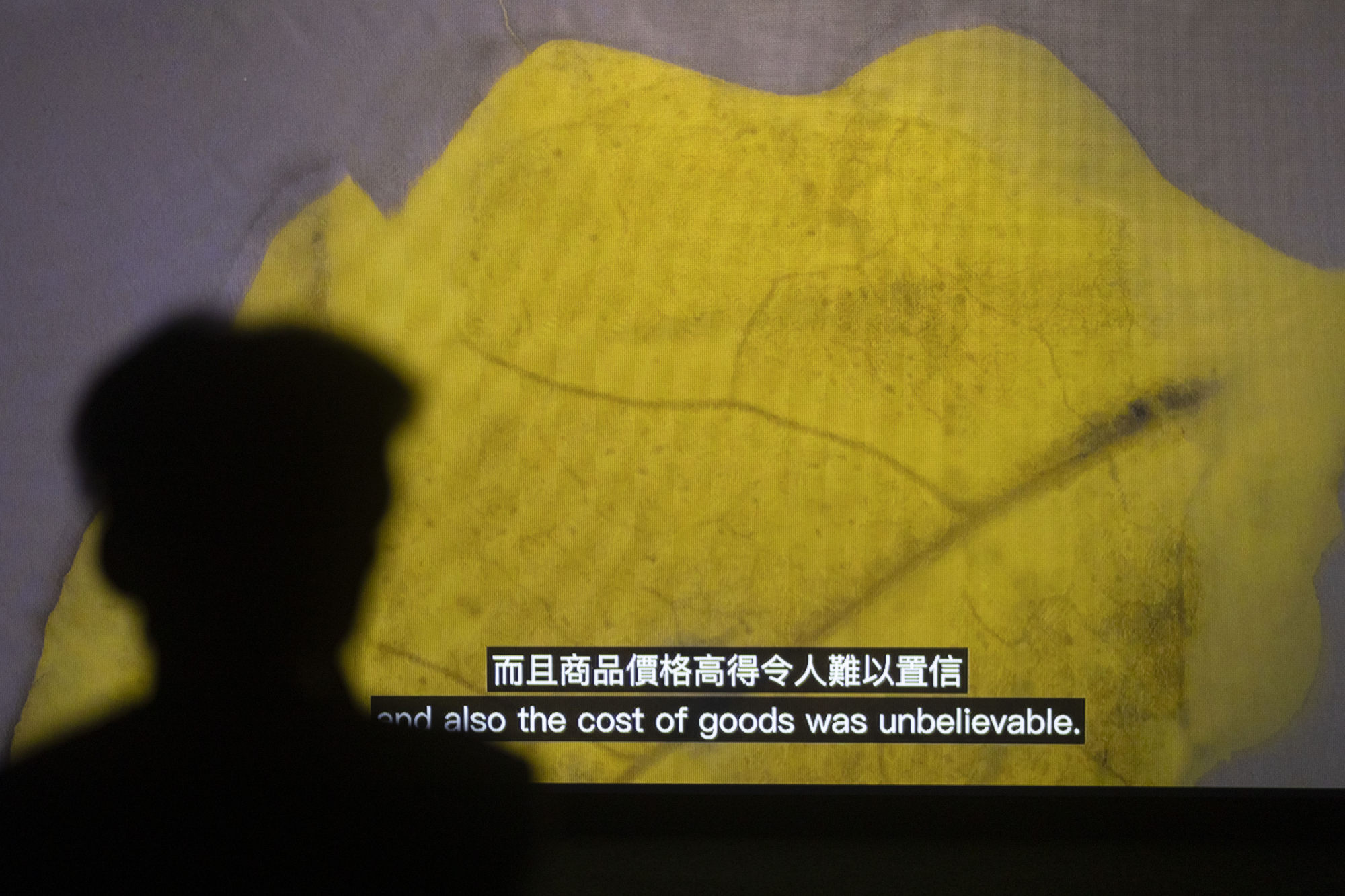
The exhibition, which also includes large-scale drawings on handmade paper, a site-specific light installation, and a 16mm stop-motion animated film, is based on an extensive field trip the artist duo took that began in 2017.
Their journey initially revolved around research on the relationship between a famous mural called The Angry Christ, painted by the queer Filipino-American modernist Alfonso Ossorio, and the historical context of sugar production on the island of Negros.
“We began very innocently in the first year as just artists … but there was a turning-point moment for us,” Camacho says.
‘It’s about deceleration’: time seems to slow in live performance art show
‘It’s about deceleration’: time seems to slow in live performance art show
On October 20, 2018, nine farmers in Sagay, in Negros Occidental, were shot and killed by armed men during bungkalan, an annual practice that sees farmers occupy landowners’ idle land to grow crops that can supplement their meagre income while awaiting sugar cane harvest. The practice is also used by some to advocate for genuine land reform.
Just weeks later, the lawyer representing their families was assassinated in broad daylight.
The two artists decided they could not ignore the deeply entrenched brutality within the plantation infrastructure of the Philippines, Camacho says. Consequently, they redirected their focus to shed light on both the oppressive nature of the plantation system and the various forms of resistance exhibited by the people, which has become a significant aspect of their project and artistic endeavours.
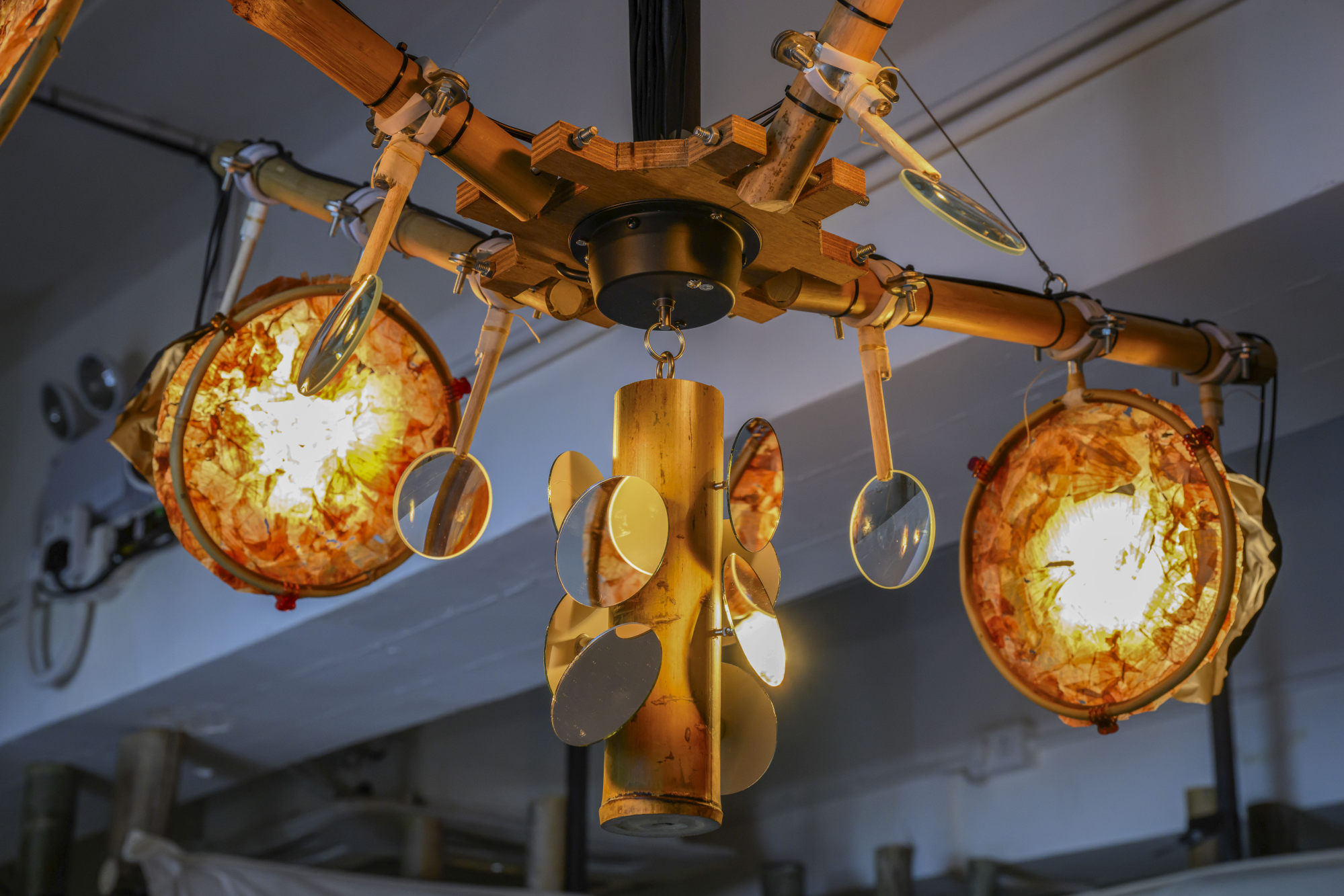
During their residency and community interactions in a small coastal village near Escalante, they became close to local fishing families, especially the young children.
The duo gathered organic materials such as food scraps for making paper and ran papermaking workshops with the children, which inspired works such as Social Volcano (lava moon), a richly textured painting consisting of natural substances like sugar cane fibre and lemongrass that depicts the landscape of Negros.
The use of natural materials in their art is “a way to connect to the physicality of the land”, Camacho says, adding that a pervasive theme of the exhibition is “transformation”.
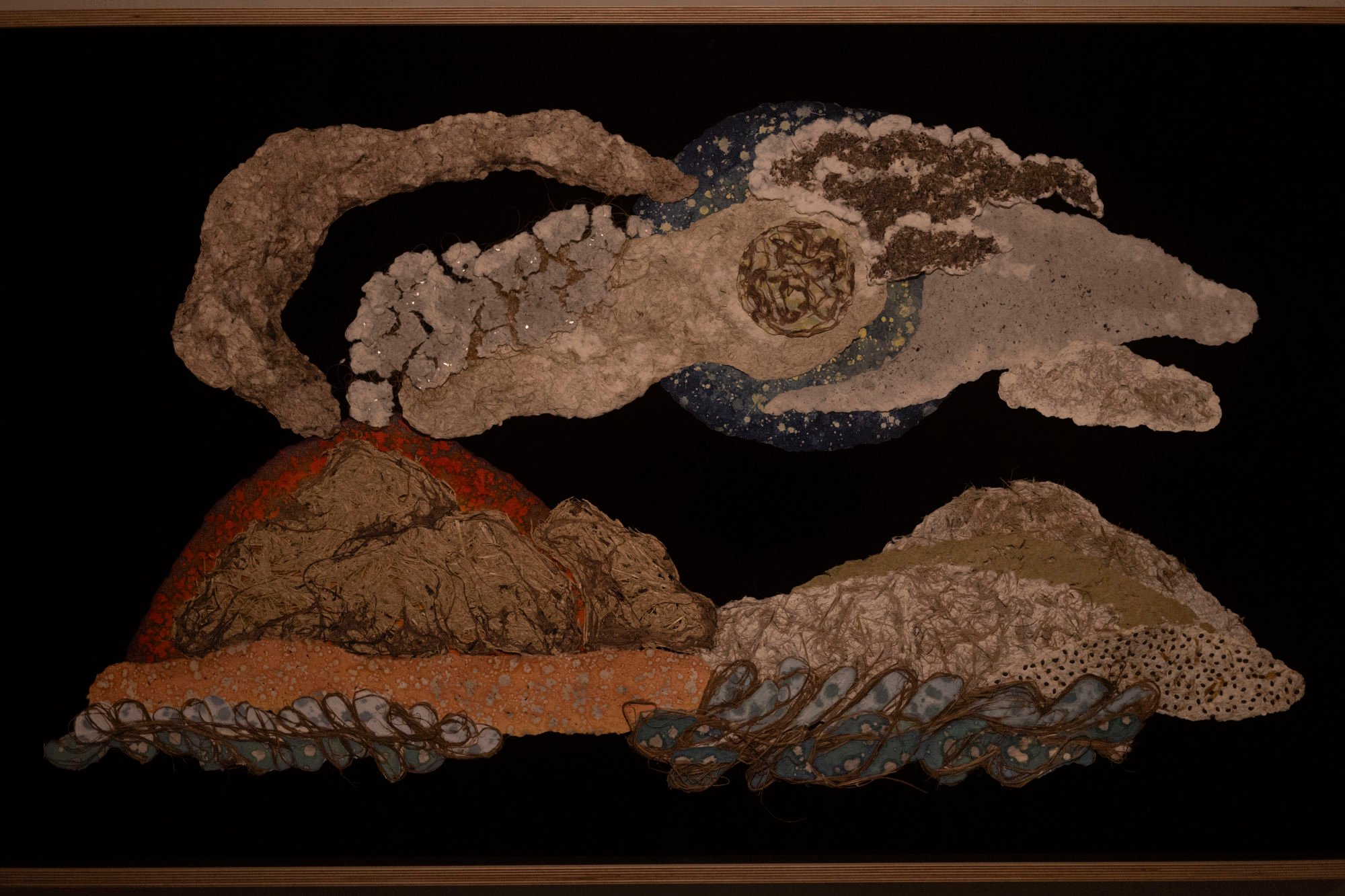
Compostlight, a light installation positioned within a cross-shaped space, showcases an innovative use of onion skins. It features rotating lights that project through intricately crafted onion skin paper and reflect off strategically placed mirrors.
“We’ve been thinking a lot about the logic of compost,” Camacho says. “If you think about it metaphorically, [it is] about how to build something else from the debris of the broken system that we’re living [in].”
The 16mm stop-motion animated film, which lasts 50 seconds, comprises 600 hand-drawn and photographed frames. Camacho describes the making of the film as a “painfully laborious process” wherein the artists had to restart the procedure – which when done correctly took three days – every time they made the slightest error.
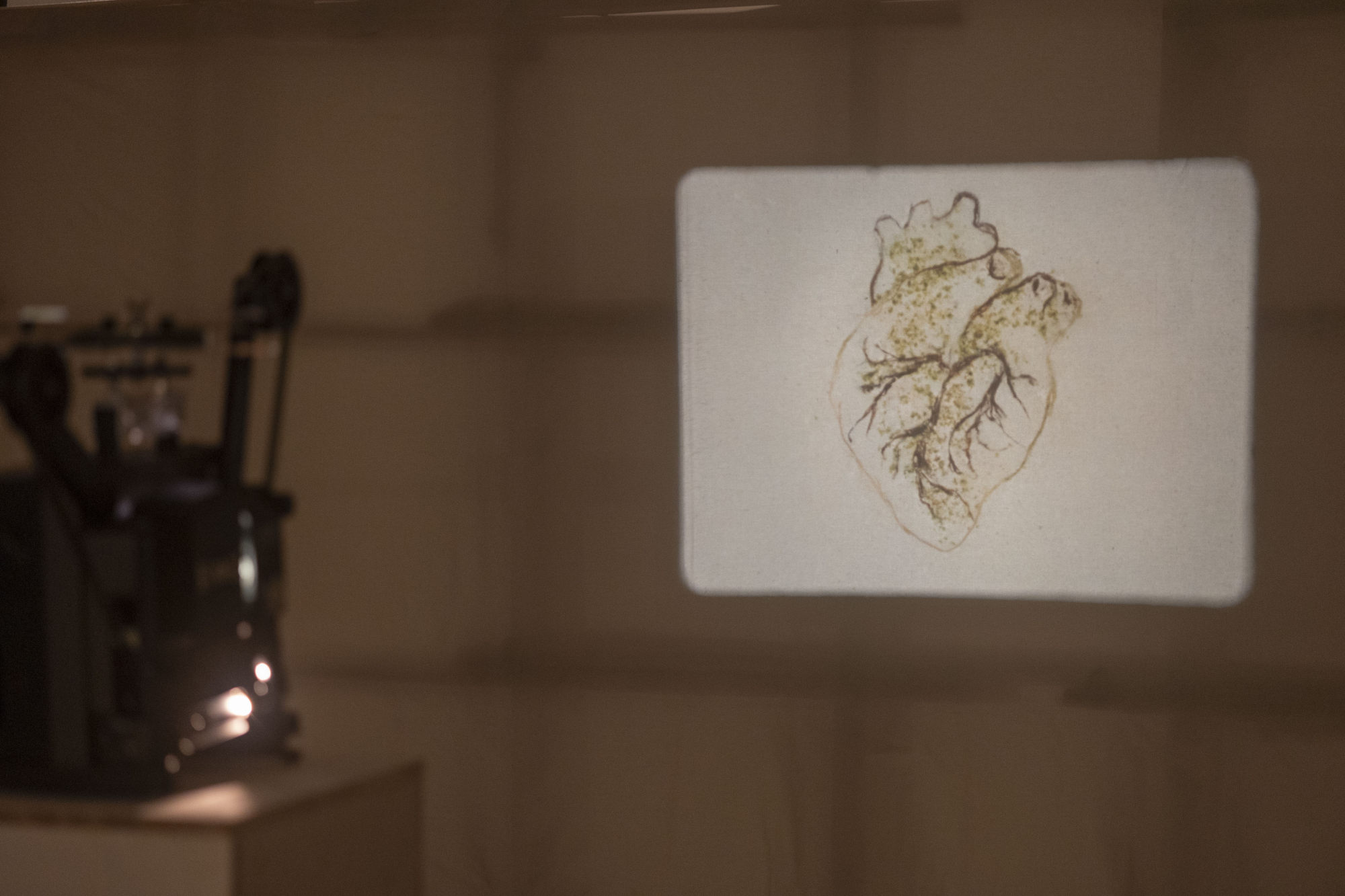
“But we like that sense … that you spend time doing this physical thing and then at the end, there’s just this magic of bringing something to life again, which is another theme in the show.”
The exhibition’s display structure notably incorporates bamboo scaffolding, a common construction method and iconic sight in Hong Kong, which suggests links between discussion on economics and politics in the Philippines and in Hong Kong.
Given the number of Philippine domestic workers in Hong Kong, says Celia Ho, the exhibition’s curator, questions need to be asked not just about their working conditions here, but what kinds of injustice are forcing them to leave their homeland?
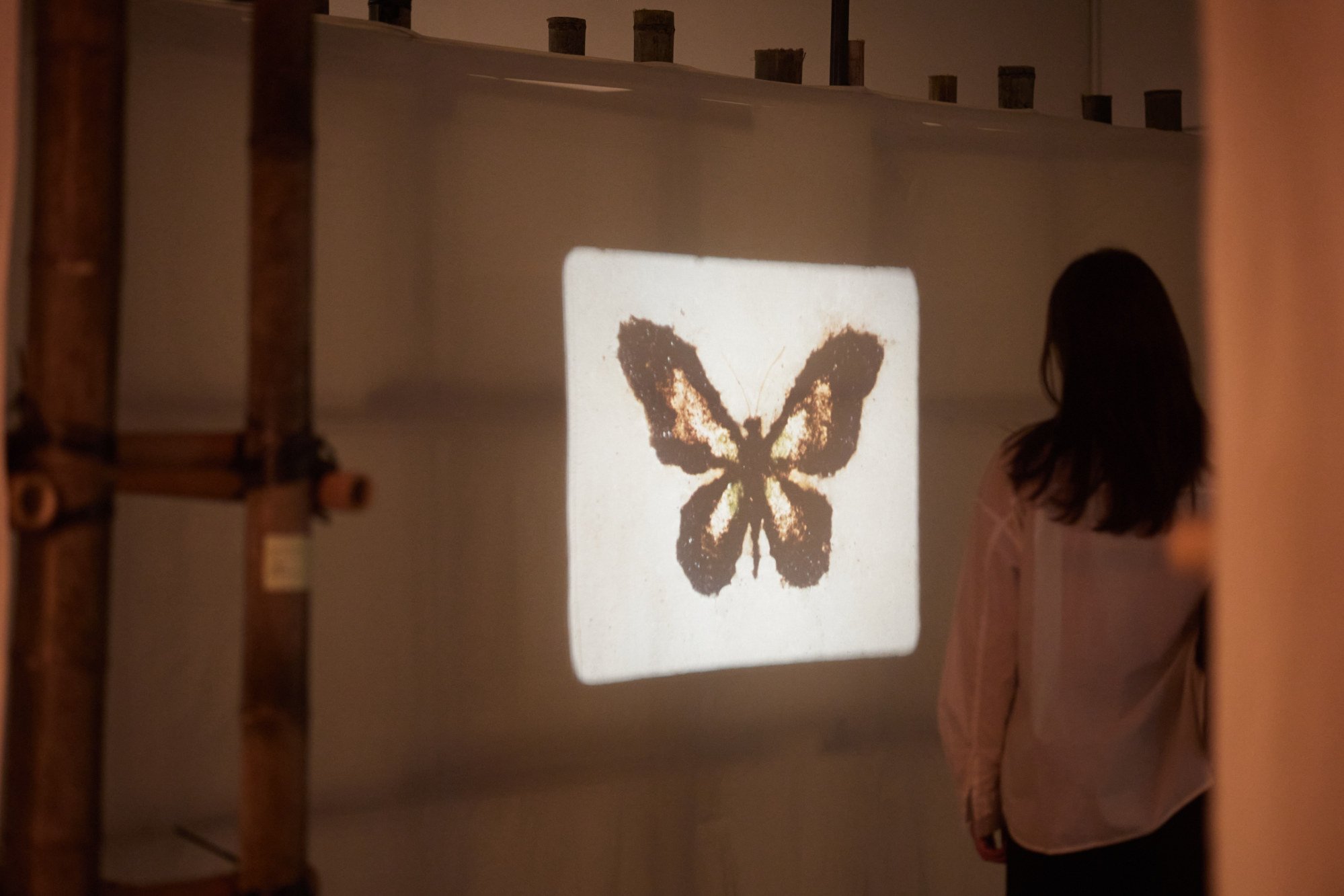
“Offerings for Escalante”, Para Site, 22/F Wing Wah Industrial Building, 677 King’s Road, Quarry Bay, Wed-Sun, 12pm-7pm. Until February 8, 2024.

